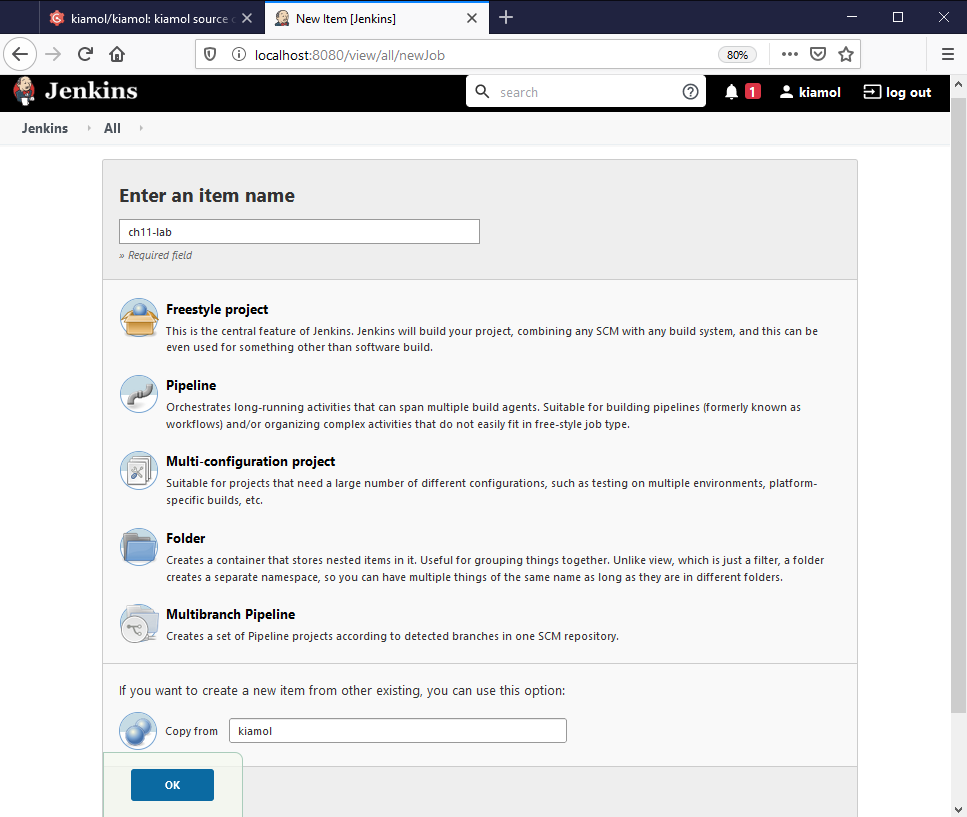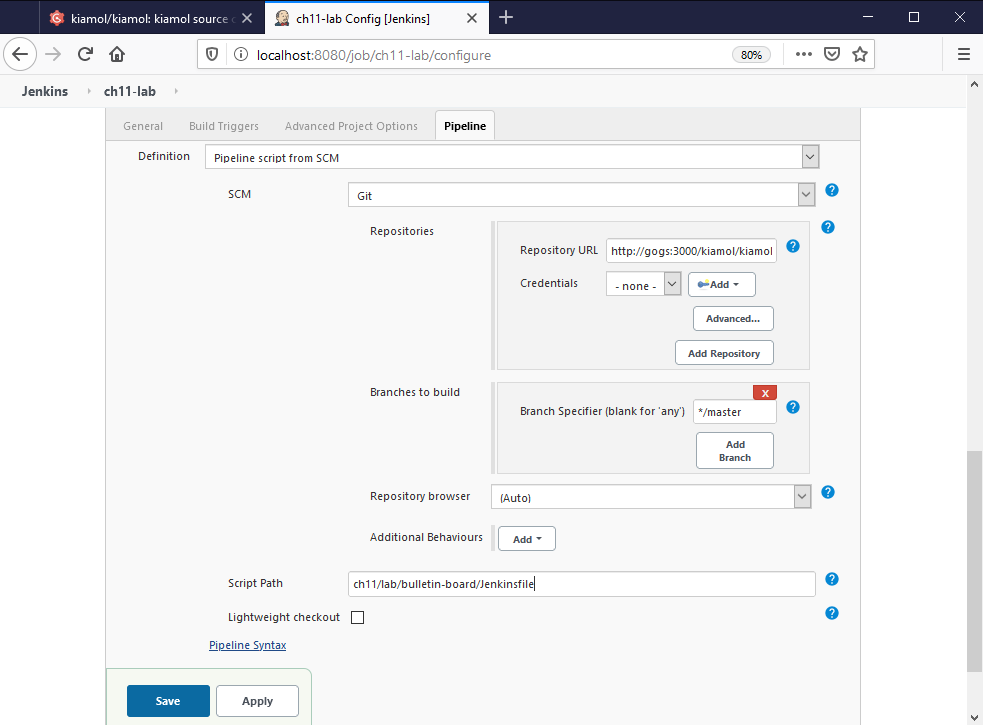Ch11 lab
Set up the new Jenkins job by copying the old one - from the Jenkins homepage click New Item and copy the project called kiamol:
In the job configuration page, scroll down to the Pipeline section and set the Script Path to ch11/lab/bulletin-board/Jenkinsfile:
The project will build in a minute or so and fail - check the logs for the build stage.
Sample Solution
Buried in the logs you'll see an error message like this:
#9 1.311 -----> Nodejs Buildpack version 1.6.30
#9 1.312 -----> Installing binaries
#9 1.312 engines.node (package.json): 10.6.0
#9 1.312 engines.npm (package.json): unspecified (use default)
#9 1.312 [31;1m**ERROR**[0m Unable to install node: no match found for 10.6.0 in [6.14.2 6.14.3 8.11.2 8.11.3 9.11.1 9.11.2 10.5.0 10.7.0]
#9 1.314 Failed to compile droplet: Failed to run all supply scripts: exit status 14
The Buildpack I'm using doesn't support the version of Node set in the application. It supports 10.5.0 and 10.7.0 but not 10.6.0 (this is an old Buildpack - later versions support more recent Node versions).
Search the source for 10.6.0 and you'll find it in this file:
ch11\lab\bulletin-board\src\package.json
Update the engines section in that file, so it uses Node.js version 10.7.0 instead:
{
...
"engines": {
"node": "10.7.0"
}
}
Now commit your changes and push to Gogs:
git add lab/bulletin-board/src/package.json
git commit -m 'Fix Node version'
git push gogs
The next build will succeed.
This is a bit of a tricky lab but it makes the point that the PaaS approach only supports certain app platforms and certain versions. If you have an app that doesn't fit then you can't use PaaS consistently.
Teardown
Uninstall the Helm release, then you can remove the namespace and all the chapter resources:
helm uninstall bulletin-board-lab
kubectl delete ns kiamol-ch11-test
kubectl delete all -l kiamol=ch11

